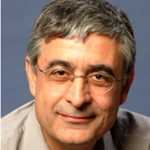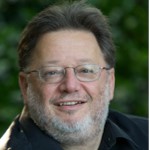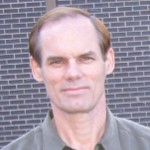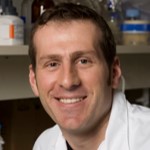Mario Thevis Ph.D., GTFCh

Publications
- Rapid Communications in Mass Spectrometry: Expanding Analytical Options in Sports Drug Testing: Mass Spectrometric Detection of Prohibited Substances in Exhaled Breath
- International Journal of Sports Medicine: Analyses of Meldonium (Mildronate) from Blood, Dried Blood Spots (DBS), and urine Suggest Drug Incorporation into Erythrocytes
- Analytical and Bioanalytical Chemistry: Qualitative identification of growth hormone-releasing hormones in human plasma by means of immunoaffinity purification and LC-HRMS/MS
- Drug Testing & Analysis: Mildronate (Meldonium) in professional sports – monitoring doping control urine samples using hydrophilic interaction liquid chromatography – high resolution/high accuracy mass spectrometry
- International Journal of Sports Medicine: Analyses of Meldonium (Mildronate) from Blood, Dried Blood Spots (DBS), and Urine Suggest Drug Incorporation into Erythrocytes
- Analytical & Bioanalytical Chemistry: Qualitative identification of growth hormone-releasing hormones in human plasma by means of immunoaffinity purification and LC-HRMS/MS
Bio
Vice President of Research
German Sport University Cologne
Mario Thevis graduated in organic chemistry and sports sciences in 1998. He earned his PhD in Biochemistry in 2001 and did post-doctoral research at the Department of Chemistry and Biochemistry of the University of California Los Angeles (UCLA) in 2002. After being a senior researcher from 2003 to 2005 he was appointed as Professor for Preventive Doping Research at the German Sport University Cologne in 2006. Dr. Thevis further qualified as Forensic Chemist, acts as director of the European Monitoring Center for Emerging Doping Agents (EuMoCEDA), and is Editor-in-Chief of Drug Testing & Analysis. Since 2014, Professor Thevis is also vice president for research at the German Sport University Cologne.
Media
Nicolas Voelcker, Ph.D.

Publications
Bio
Professor
University of South Australia
After completing his BSc at the University of Saarland (1993) and his MSc at the RWTH Aachen (1995) in Germany, Nico completed a PhD thesis (1999) in polymer surface chemistry at the DWI Leibniz Institute for Interactive Materials under Professor Hartwig Höcker. He received postdoctoral fellowships to work in the area of bioorganic chemistry under Professor Reza Ghadiri at the Scripps Research Institute in La Jolla, California. In 2001 he became a Lecturer at Flinders University in Australia, an Associate Professor in 2006 and a full Professor in 2008. From 2008-2011, he was the Associate Head of the Faculty of Science and Engineering at Flinders University. Since 2012, he is a Professor in Chemistry and Materials Science at the Mawson Institute of the University of South Australia. From 2013-2015, he was Deputy Director of the Mawson Institute at the University of South Australia and Program Leader of the Cooperate Research Centre for Cell Therapy Manufacturing. Since 2014, he is also Node Leader in the Australian Research Council Centre of Excellence in Convergent Bio-Nano Science & Technology. Since 2015, he is the Lloyd Sansom Chair in Biomaterials and Nanomedicine and Strand Leader at the Future Industries Institute of the University of South Australia.
His key research interest lies in the fabrication and surface modification of porous semiconductor materials for applications in biosensors, biochips, biomaterials and drug delivery. A core research activity in his laboratory is the study of porous silicon based nanostructures and their surface chemistry.
Using advanced surface analytical spectroscopy and microscopy techniques, his research has also contributed to the understanding of the fundamental principles of interfacial interactions of proteins, nucleic acids and whole cells on solid surfaces. Using this fundamental understanding, he is also developing new nanostructured materials for biosensors, biochips, biomaterials and drug delivery.
He has authored over 290 peer-reviewed journal articles with over 5300 citations, h-index 39. He has received fellowships from the German Research Foundation (DFG), the CSIRO, the Alexander von Humboldt Foundation, is a recipient of the Tall Poppy Science Award, a finalist for the South Australian Scientist of the Year 2015 and the Australian Innovation Challenge. He is serving on the College of Experts of the Australian Research Council.
Jack Henion, Ph.D.

Publications
- Analytical Chemistry: A Book-Type Dried Plasma Spot Card for Automated Flow-Through Elution Coupled with Online SPE-LC-MS/MS Bioanalysis of Opioids and Stimulants in blood
- Analytical Chemistry: Hematocrit-Independent Quantitation of Stimulants in Dried Blood Spots: Pipet versus Microfluidic-Based Volumetric Sampling Coupled with Automated Flow-Through Desorption and Online Solid Phase Extraction-LC-MS/MS Bioanalysis.
- Drug Testing and Analysis: Quantitative determination of opioids in whole blood using fully automated dried blood spot desorption coupled to on-line SPE-LC-MS/MS.
- Bioanalysis: Novel membrane devices and their potential utility in blood sample collection prior to analysis of dried plasma spots.
Bio
Professor Jack Henion is Emeritus Professor of Toxicology at Cornell University where he was a member of the College of Veterinary Medicine commencing in 1976. Dr. Henion was co-founder of Advion BioSciences in 1993 and is now CSO of Advion, Inc. and VP R&D of Q2 Solutions. Professor Henion has received three Doctor Honoris Causa (Honorary Doctorate) degrees in recognition of his international reputation in modern analytical techniques. During his tenure at Cornell Professor Henion conducted research and explored applications in many areas of liquid chromatography/mass spectrometry (LC/MS) employing atmospheric pressure ionization (API) sources. Professor Henion has published over 225 peer reviewed papers in the scientific literature, trained nearly 100 students, post-doctoral scientists, and trainees while receiving 12 patents for inventions developed from his work. He has also received a number of awards which recognize his contributions to analytical chemistry and entrepreneurship.
Media
What a Drop can Do – Newsletter Feature
2017 Outstanding Contribution to Anti-Doping Science Award – Video
James Harynuk, Ph.D.

Bio
Professor
University of Alberta Department of Chemistry
After completing an undergraduate degree in Environmental Chemistry at the University of Waterloo in 1999, Dr. Harynuk joined the newly-formed research group of Tadeusz Górecki also at the University of Waterloo, becoming one of the first Canadian researchers to begin studying the new and exciting field of comprehensive two-dimensional gas chromatography (GC×GC). Over the course of his graduate work, Dr. Harynuk developed several modulators for GC×GC and invented a new mode of operation for GC×GC, termed stop-flow GC×GC, and conducted the first systematic studies into column overloading effects in GC×GC.
Dr. Harynuk completed his PhD in December of 2004, and in January 2005 took up a position with the Australian Centre for Research on Separation Science at the Royal Melbourne Institute of Technology in Melbourne, Australia working with Philip Marriott. While there he continued studies into GC×GC applications and theory. The research group introduced the use of short primary columns for fast GC×GC and simultaneously became the first group to use cold-on-column injection for a GC×GC separation. They also introduced the concept of the Modulation Ratio – a term that relates the width of a peak eluting from the first dimension to the modulation period. This allows one to quickly and easily evaluate the extent of modulation in a separation and compare the modulation between separations.
In May 2007, Dr. Harynuk found himself at the University of Alberta, starting up a new laboratory with one summer student (Andrew Kwong), and in the fall of 2007 The Harynuk Group became official with one undergraduate (Justin Anderson) and three graduate students (Aleisha Rosse, Bryan Karolat, and Nikolai Sinkov).
Awards:
- Young Researcher Travel Award, 31st ISCC&E, Albuquerque, NM, Nov. 28-30, 2007
- Best Poster Award, (Fast GC×GC with Short Primary Columns) Asianalysis VIII, October 16-20 2005, Taipei, Taiwan
- Universisty of Waterloo W.B. Pearson Medal (June 2005).
Liying Jiang, Ph.D.

Bio
The PCC is excited to welcome Liying Jiang into the PCC Fellowship Program as our first female fellow, first international fellow, and third fellow since the program’s inception. Dr. Jiang will be completing her fellowship at the Drug Control Center at King’s College London under the mentorship of Dr. David Cowan.
Liying Jiang graduated in Chemistry (teaching) from Soochow University, Suzhou, China in 2000 and worked as a chemistry teacher in high schools in China before she moved to Sweden in 2007. She earned her Master (2010) and PhD (2015) in Analytical Chemistry from Stockholm University, Sweden, under the supervision of Dr. Leopold L. Ilag.
Dr. Jiang’s research interests lie in mass spectrometry-based analytical methods development and their diverse applications. During her PhD research, she has worked on different mass spectrometric techniques for both small and large molecules, published 10 peer-reviewed articles and received a number of grants. Her PhD thesis won the honorable mention of Phabian award in 2015. With the support of the PCC Fellowship Program, she is very excited to contribute her acumen to anti-doping science working with Dr. David A. Cowan at King’s College London’s Drug Control Center.
Emad Kiriakous Ph.D.

Publications
- Nanomedicine: Rapid isolation and detection of erythropoietin in blood plasma by magnetic core gold nanoparticles and portable Raman spectroscopy
- Journal of Nanobiotechnology: Reproducible and label-free biosensor for the selective extraction and rapid detection of proteins in biological fluids
- Talanta: sensitive label free surface enhanced Raman spectroscopy method for the detection of biomolecules.
- Queensland University of Technology: A Novel identification method for ultra trace detection of biomolecules using functionalized-surface enhanced Raman Spectroscopy (SERS)
Bio
Professor
Queensland University of Technology
Dr. Emad Kiriakous has significant professional and academic expertise in the fields of analytical toxicology and both analytical and biological chemistry. Through his professional career he developed practical expertise in the analysis of drugs and poisons in various biological samples. He led research for the development of new methodology for the detection of benzodiazepines in urine samples. Recently he led significant research at QUT for the development of deep Raman spectroscopy techniques for the depth profiling of deep layers of a sample. His research interests include the development of modern analytical platforms and methodologies for analytical and bio-analytical applications in forensics, toxicology, and homeland security.
Daniel Eichner, Ph.D.

Publications
- Drug Testing and Analysis: Intranasal delivery of Natesto testosterone gel and its effects on doping markers
Bio
President/Laboratory Director
SMRTL Lab
Dr. Eichner has extensive anti-doping experience and was previously the Science Director at the United States Anti-Doping Agency (USADA). At USADA, he provided scientific support for USADA’s programs in research, intelligence, sample collection planning, results management, arbitration and education. Prior to joining USADA, Dr. Eichner was the Chief Scientific Officer for the Australian Sports Anti-Doping Authority (ASADA). During his time at ASADA, he was a member of the Anti-Doping Research Program, Anti-Doping Ethical Review Board and an expert witness for numerous Australian Customs Investigations relating to steroid and performance-enhancing seizures. He received his B.S. from the Australian National University (ANU) with first class honors and later completed his Ph.D. in medical science from the ANU.
Frederick West, Ph.D.

Bio
Professor West was born and raised in southern Arizona, and received his undergraduate training (Chemistry, with Honors and Summa cum Laude) at the University of Arizona in Tucson. While there, he performed research with Victor Hruby on conformationally restricted analogues of the peptide hormone oxytocin, and developed one of the first HPLC-based methods for amino acid analysis of peptide hydrolysates (publication 1). He then moved to Madison, Wisconsin where he was an NSF Predoctoral Fellow at the University of Wisconsin in the labs of Professor Edwin Vedejs. His doctoral research concerned the generation of nonstabilized azomethine ylides using desilylation methods its application to the synthesis of pyrrolizidine alkaloids (publications 2-3). He spent two years at Columbia University as an NIH Postdoctoral Fellow with Professor Gilbert Stork, working on radical cyclization-based approaches to the cardenolides (publication 23). Professor West began his independent career at the University of Utah in 1988. Initially, his program focused on the use of pyran-4-one photochemistry for the rapid assembly of complex polycyclic skeletons, and the Stevens rearrangement of metallocarbene-derived ylides. Subsequent areas of interest have included the Nazarov cyclization, taxane synthesis and bioconjugate chemistry. (See the research description for a more detailed discussion of current research interests.) In 2002, Professor West moved to the University of Alberta in Edmonton, where he is currently Professor of Chemistry and Associate Chair (Research) of the department.
Christine Ayotte, Ph.D.

Bio
Pr. Ayotte obtained her M.Sc. (1978) and Ph.D. (1983) degrees in Organic Chemistry (Photochemistry) from the University de Montreal. Following two years of postdoctoral studies in mass spectrometry at the “INRS-Santa”, she joined as a research associate its Doping Control Laboratory. Her main research interests were then the characterization of the urinary metabolites of anabolic steroids and this lead to the development of a comprehensive gas chromatographic/mass spectrometric method for the detection and identification of anabolic agents. She is responsible for the Doping Control Laboratory since 1991 and was research associate professor since 1992. She is a member of the IAAF doping Commission since 1995, of the IOC Working Group on Harmonization of Laboratory protocols (1996-…) and was elected representative of the Heads of IOC Accredited Laboratories in 1995-1996. She is often requested to act as an expert for sport administrative, civil or criminal court hearings and arbitration in Canada, USA and Europe.
Judith Su, Ph.D.

Bio
Judith Su’s background is in imaging, microfabrication and optical instrument building for biological and medical applications. In general, her research interests are to use imaging, sensing and rheological techniques to reveal basic biological functions at the molecular, cellular and tissue levels. Recently her work has centered on label free single molecule detection using microtoroid optical resonators with an eye on basic research, and translational medicine through the development of miniature field portable devices.
Eleftherios Diamandis, Ph.D.

Publications
- Clinical Chemistry: Prostate-Specific Antigen as a Marker of Hyperandrogenism in Women and Its Implications for Antidumping
- Clinical Chemistry and Laboratory Medicine: Effect of age on serum prostate-specific antigen in women.
- Clinical Chemistry and Laboratory Medicine: Serum complexed and free prostate-specific antigen (PSA) for the diagnosis of the polycystic ovarian syndrome (PCOS)
Bio
Eleftherios Diamandis is a researcher at the Mount Sinai Hospital, and has been working with the Partnership for Clean Competition since 2015.
Peter Van Eenoo, Ph.D.

Publications
- Journal of Chromatography: Improved sensitivity by use of gas chromatography-positive chemical ionization trip quadrupole mass spectrometry for the analysis of drug related substances.
- Rapid Communications in Mass Spectrometry: Gas chromatography/chemical ionization triple quadrupole mass spectrometry analysis of anabolic steroids: ionization and collision-induced dissociation behavior.
- Journal of Mass Spectrometry: Efficient approach for the detection and identification of new androgenic metabolites by applying SRM GC-CI-MS/MS: a methandienone case study.
- International Journal of Molecular Sciences: In vitro metabolic studies of REV-ERB agonists SR9009 and SR9011
Bio
Peter Van Eenoo is a researcher at the University of Ghent’s Doping Control Laboratory, and has been working with the Partnership for Clean Competition since 2015.
Geoff Miller, Ph.D.

Bio
Dr. Miller joined the PCC Fellowship Program in 2015, under the mentorship of Dr. Daniel Eichner at the WADA-accredited Sports Medicine Research & Testing Laboratory in Utah. Through the program, Dr. Miller is conducting high-quality scientific research intended to advance knowledge in the anti-doping sphere as well as expanding his knowledge related to anti-doping analysis and laboratory excellence. Dr. Miller has been described as a “star performer in anti-doping” by PCC Scientific Advisory Board Member and NFL Chief Anti-Doping consultant Dr. Bryan Finkle, and is on track to enjoy a promising career in the field.
Publications & Presentations
Publications:
- American Academy of Physical Medicine and Rehabilitation: The Anti-Doping Movement.
Presentations:
- Miller G, Teramoto M, Cushman D, Eichner D. Assessing Dehydration in the Context of the
Biological Passport. 34th Cologne Workshop on Dope Analysis; Cologne, Germany. February 2016. - Nair V, Miller G, Morrison S, Summers M, Willick S, Eichner D. Intranasal Delivery of Natesto
Testosterone Gel and Its Effects on Doping Markers. 34th Cologne Workshop on Dope Analysis;
Cologne, Germany. February 2016.
Media
Chris Harrison, Ph.D.

Bio
Chris Harrison began his study of chemistry at Concordia University in Montreal, following a Ph.D. at the University of Alberta with Chuck Lucy (2005) he proceed to a postdoc with Michael Bowser at the University of Minnesota Twin Cities. These opportunities exposed Chris to a wide breadth of analytical separation techniques, from HPLC, to microfluidic systems. In 2007 Chris joined the faculty at SDSU where he has established his research group, and become recognized by his peers as being at the forefront of advancing the use of technology in teaching analytical chemistry. When not in the lab Chris tries to spend as much time as possible enjoying the wonderful San Diego weather by spending hours riding his bike throughout the county.
Richard Yost, Ph.D.

Bio
Rick Yost was born May 31, 1953 in Martins Ferry, Ohio, and lived his first seven years in Wheeling, West Virginia, before his family moved to Phoenix, Arizona. His B.S. degree in Chemistry was received from the University of Arizona in December 1974. His interest in analytical chemistry was kindled by Professors Quintus Fernando and Bonner Denton in courses in Quantitative Analysis and Instrumental Analysis, and by Professor Mike Burke and graduate student John Phillips in analytical research involving computer simulation of gas chromatography. Summer jobs at Affiliated Pathologists Laboratories, Motorola Semiconductors, and the University Analytical Center exposed him to a wide range of applications of analytical chemistry.
In January, 1975, Rick moved from Arizona to the frigid north to pursue graduate studies in analytical chemistry under an NSF graduate fellowship at Michigan State University, focusing on electronics and computerized instrumentation. Together with Professor Chris Enke, he conceived of the computerized tandem quadrupole mass spectrometer for analytical MS/MS studies. Although their proposal to NSF was not persuasive enough to convince the reviewers that such an instrument was viable or analytically useful, Dave Nelson of the Office of Naval Research invested in the proposed research. A couple thousand pounds of stainless steel, aluminum, and electronics later, the instrument was taking form, when a chance meeting at the May 1977 ASMS Conference in Washington, DC, with Professor Jim Morrison of Australia’s LaTrobe University found unexpected support. Jim had constructed a similar triple quad instrument for laser spectroscopy of mass-selected ions, and invited Rick to spend a couple of months performing preliminary experiments on that instrument. Those experiments, combined with computer simulations of ion trajectories with SIMION (written by Jim and his graduate student Don McGilvery) were instrumental in the successful completion of the Michigan State instrument. The instrument was patented by Research Corporation for MSU; its importance has been recognized by the presentation to Rick and Chris of the 1993 ASMS Award for Distinguished Contribution to Mass Spectrometry. Over $20 billion of mass spectrometers have been sold worldwide based on this and other patents from his research group. Rick received his Ph.D. in the summer of 1979 and assumed the position of Assistant Professor at the University of Florida. Rick has risen through the ranks at UF to Professor and Head of the Analytical Chemistry Division. His research has involved 91 graduate students funded by nearly $4 million in research grants, and the publication of over 155 papers (link to recent publications). Also contributing to these research efforts have been a number of collaborators at UF and around the world, visiting scientists, plus undergraduate and high school researchers. Current research interests center on instrumental developments, fundamental studies, and analytical applications of tandem mass spectrometry and ion mobility, including imaging mass spectrometry.
Rick currently serves as a member of the Florida Board of Governors (Regents) and as the Chair of the Advisory Council of Faculty Senates of Florida. He is past Chair of the UF Faculty Senate and has served on the UF Board of Trustees. He has served as the Treasurer and Secretary of the American Society for Mass Spectrometry, and has served on the editorial boards of The Journal of the American Society for Mass Spectrometry and The International Journal of Mass Spectrometry. On the personal side, Rick married Katie Fitzgerald on June 16, 1979 (a week after his Ph.D. commencement exercises). As best friends and partners in life, we have enjoyed traveling around the world (before kids!) and raising a wonderful family – Sarah (BS in Biology from Furman University), Mike (Environmental Sciences major at Florida Institute of Technology) and Matt (Anthropology major here at UF). We all enjoy school, Scouting, traveling, hiking, and swimming.
David Handelsman, Ph.D.

Bio
David J Handelsman is Professor of Reproductive Endocrinology and Andrology, University of Sydney, inaugural Professor/Director of the ANZAC Research Institute and the founding Director, Andrology Department, Concord Hospital (1999-). After training in Medicine (MB BS University of Melbourne, 1974), Endocrinology specialization (FRACP, 1980) and research training (PhD, University of Sydney, 1984), he was awarded postdoctoral Fellowships (NHMRC Fairley Fellow 1984-6, Wellcome Senior Research Fellow1987-91) and worked in the USA and Germany. As a career physician/medical researcher with expertise in Andrology (male reproductive health, medicine and biology), he is Australia’s first Professor of Andrology and established the first hospital Andrology Department at Concord Hospital.
He has been for decades an international research and thought leader in Andrology. His research into androgen physiology, pharmacology and toxicology spans basic, clinical and public health domains has focused on genetic mouse models of androgen action; steroid mass spectrometry; anti-doping science; clinical androgen pharmacology; use, misuse and abuse of androgens; and hormones and male ageing. As among the most highly productive and cited authors on testosterone or androgens, he has written editorials on testosterone and men’s health for top journals (New England Journal of Medicine, JAMA, Journal of Clinical Endocrinology and Metabolism, Endocrine Reviews, Human Reproduction). He has contributed chapters to the leading international Endocrinology and Reproductive Medicine/Biology textbooks, been an invited manuscript reviewer for 140 peer-review journals and a member of 19 journal editorial boards including all top international Endocrinology and Reproductive Medicine/Biology journal.
His international standing and authority as a research leader has been recognized by election to life membership of the Endocrine Society of Australia (2008), Society for Reproductive Biology (2015) and Fellowship, Academy of Health and Medical Sciences (2015). He has served on the Australian Drug Evaluation Committee (1994-8), WHO Human Reproduction Program (1988-94) and serves on the World Anti-Doping Agency (WADA)’s Health, Medicine and Research Committee (2010-9). Has appeared as an expert witness before Full Bench, Federal Court of Australia, and for WADA and ASADA before anti-doping tribunals as well as the Court for Arbitration in Sport.
Rodrigo Aguilera, Ph.D.

Bio
Dr. Rodrigo Aguilera received his Bachelor’s degree in Chemistry in 1991 and his Master’s Degree in Organic Chemistry in 1992 at the University of Lyon, France. Later, he completed his doctorate in Analytical Chemistry and Physical Chemistry at the National Center for Scientific Research (CNRS) and the University of Claude Bernard Lyon I, France.
During his stay at CNRS, he worked for 5 years in the Laboratory of Mass Spectrometry – Chemistry and Biology to develop a new application for the detection of anabolic steroids used by professional athletes by measuring the ratio of carbon isotopes by mass spectrometry (IRMS).
In 1997 he was employed by the Olympic Analytical Laboratory in the Department of Medicine and Molecular Pharmacology of the Faculty of Medicine of the University of California, Los Angeles (UCLA). He was responsible for IRMS steroid analysis at the Summer Olympics in Atlanta in 1996, at the Winter Olympic Games in Salt Lake City and at the 2007 Pan American Games in Rio de Janeiro, Brazil, as well as at other sporting events.
In 2002, he joined the Laboratory of Mass Spectrometry and Proteomics in the Department of Psychiatry at the Faculty of Medicine of UCLA and extended his experience in the field of proteomics for future applications in the field of anti-doping control.
In 2003 he helps establish and lead the Proteomics Laboratory at the University of Southern California’s Los Angeles Pharmacy Faculty, which is dedicated to cancer research, bio-markers and Metabolomics studies.
During the years 2007-2008 he joined Applied Biosystems as Team Leader in Proteomics, Clinical and Toxicology applications.
Since 2009 Dr. Aguilera has served as external expert reviewer for research projects in the anti-doping field for the different national and international organizations.
In 2011 Dr. Aguilera joined the Voluntary Anti-Doping Association (VADA) in Las Vegas, Nevada, as Scientific Director. The following year, in 2012 he held the position of Director of the Doping Control Laboratory of Portugal in Lisbon until January 2014.
From February 1, 2014 he held the position of Director of the Doping Control Laboratory in Madrid.
Since January 1st he is working now as a Manager of human testing at Doha Anti-doping Laboratory.
Philip Smith, Ph.D.

Bio
Dr. Smith received a B.S. in Pharmacy from the University of Illinois, Chicago Medical Center, and then a Ph.D. in Pharmaceutical Chemistry, with an emphasis in pharmacokinetics, in 1985 from the University of California, San Francisco. After postdoctoral studies at the National Institutes of Health in Bethesda, MD, as a National Research Council Fellow, he joined the faculty of the College of Pharmacy at the University of Texas at Austin. In 1992 he moved to the School of Pharmacy at the University of North Carolina at Chapel where he is presently Associate Professor in the Division of Molecular Pharmaceutics. Dr. Smith’s main research efforts are directed toward understanding factors influencing the disposition, pharmacokinetics, reactivity and potential toxicity of labile acyl glucuronide metabolites, the role of glucuronidation in intestinal toxicity of drugs and the modulation of drug glucuronidation by botanicals/herbal remedies. He is Director of the Quantitative Targeted Proteomics Laboratory which utilizes LC-MS for protein measurements in complex matrices. He was recently on the USP Dietary Supplements: Performance Standards Expert Committee. He is past recipient of the Faculty Development Award in Pharmacology and Toxicology from the PhRMA Foundation. Dr. Smith was Co-Chair of the 1997 ISSX meeting and previously an ISSX Council Member for North America. He serves as an ad hoc reviewer for NIH study sections and as a consultant to the pharmaceutical industry. Dr. Smith is a member of the editorial advisory board for the Journal of Pharmacology and Experimental Therapeutics, Drug Metabolism Reviews, and participates as a reviewer for the journals Drug Metabolism and Disposition, Biochemical Pharmacology, Pharmaceutical Research, Journal of Proteome Research, Journal of Pharmaceutical Sciences and others.
M. Polet, Ph.D.

Publications
- Journal of Chromatography: Improved sensitivity by use of gas chromatography-positive chemical ionization trip quadrupole mass spectrometry for the analysis of drug related substances.
- Rapid Communications in Mass Spectrometry: Gas chromatography/chemical ionization triple quadrupole mass spectrometry analysis of anabolic steroids: ionization and collision-induced dissociation behavior.
- Journal of Mass Spectrometry: Efficient approach for the detection and identification of new androgenic metabolites by applying SRM GC-CI-MS/MS: a methandienone case study.
Bio
Michael Polet is a researcher at the University of Ghent’s Doping Control Laboratory, and has been working with the Partnership for Clean Competition since 2014.
Lore Geldof, Ph.D.

Publications
- Biomedical Chromatography: In vitro and in vivo metabolism studies of dimethazine
Bio
Lore Geldof is a Professor and Researcher at University if Ghent, and has been working with the PCC since 2015
Lynch, Ph.D.

Publications
- Analytical Toxicology: Optimization and Validation of High-Resolution Mass Spectrometry Data Analysis Parameters
- Clinical Chemistry: Comparison of Information-Dependent Acquisition on a Tandem Quadrupole TOF vs a Triple Quadrupole Linear Ion Trap Mass Spectrometer for Broad-Spectrum Drug Screening
Bio
Kara Lynch is a Professor and Researcher at The University of California San Fransisco, and has been working with the PCC since 2014.
Ashenden, Ph.D.

Publications
- Medicine and Science in Sports: Acute hyperhydration reduces athlete biological passport OFF-hr score
Bio
Mike Ashenden is a Researcher at Science and Industry Against Blood Doping (SIAB), and has been working with the PCC since 2014.
Holt, Ph.D.

Publications
- Drug Testing and Analysis: Novel markers to detect recombinant human insulin-like growth factor-I (rhIGF-I)/rhIGF binding protein-3 (rhIGFBP-3) misuse in athletes
- Drug Testing and Analysis: Biochemical markers of recombinant human insulin-like growth factor-I (rhIGF-I)/rhIGF binding protein-3 (rhIGFBP-3) misuse in athletes.
- BMC Medical Research Methodology: Statistical methodology for age-adjustment of the GH-2000 score detecting growth hormone misuse
- Indian Journal of Endocrinology and Metabolism: Detecting growth hormone misuse in athletes
Bio
Richard Holt is a Professor and Researcher at The University of Southampton, and has been working with the PCC since 2014.
Hoofnagle, Ph.D.

Publications
- Clinical Chemistry: Interlaboratory agreement of insulin-like growth factor 1 concentrations measured by mass spectrometry
Bio
Andy Hoofnagle is a Professor and Researcher at The University of Washington, and has been working with the PCC since 2011.
Keller, Ph.D.

Publications
- Sports Medicine: The Urine Marker Test: An Alternative Approach to Supervised Urine Collection for Doping Control
Bio
Ruprecht Keller is a researcher at Cologne Central Hospital Lab, and has been working with the PCC since 2013.
Borchers, Ph.D.

Publications
- Molecular and Cellular Proteomics: Multiple Reaction Monitoring Enables Precise Quantification of 97 Proteins in Dried Blood Spots
Bio
Christoph Borchers is a Professor and Researcher at The University of Victoria, and has been working with the PCC since 2013
Schultze, Ph.D.

Publications
- Frontiers in Endocrinology: The impact of genetics and hormonal contraceptives on the steroid profile in female athletes
- Drug Testing and Analysis: Urinary steroid profile in females – the impact of menstrual cycle and emergency contraceptives
Bio
Jenny Schulze is a Researchers at the Karolinska Institutet, and has been working with the PCC since 2012.
Snyder, Ph.D.

Publications
- Gene Therapy: Longevity of rAAV Vector and Plasmid DNA in Blood after Intramuscular Injection in Non-Human Primates: Implications for Gene Doping
- PLoS One: Development and Utility of an Internal Threshold Control (ITC) Real-Time PCR Assay for Exogenous DNA Detection
- Analytical and Bioanalytical Chemistry: PCR-based Detection of Gene Transfer Vectors: Application to Gene Doping Surveillance
Bio
Richard Snyder is a Professor and Researcher at the University of Florida, and has been working with the PCC since 2011.
Grau, Ph.D.

Publications
- Clinical Hemorheology and Microcirculation: Decrease in red blood cell deformability is associated with a reduction in RBC-NOS activation during storage
Bio
Marijke Grau is a Researcher at The German Sport University in Cologne, and has been working with the PCC since 2011.
Siegel, Ph.D.

Publications
- Immunologic Research: Translational applications of antibody phage display
- Emerging Technologies in Transfusion Medicine: Diagnostic and Therapeutic Applications of Phage Display Technology
Bio
Donald Siegel is a Professor and Researcher at The University of Pennsylvania, and has been working with the PCC since 2011.
Piper, Ph.D.

Publications
- Drug Testing and Analysis: Investigations on hydrogen isotope ratios of endogenous urinary steroids: reference population-based thresholds and proof-of-concept
- Analytical and Bioanalytical Chemistry: Effect of changes in the deuterium content of drinking water on the hydrogen isotope ratio of urinary steroids in the context of sports drug testing.
- Analytical and Bioanalytical Chemistry: Combination of carbon isotope ratio with hydrogen isotope ratio determinations in sports drug testing
Bio
Thomas Piper is a Researcher at Deutsche Sporthochschule Köln, and has been working with the PCC since 2011.
Dragoo, Ph.D.

Publications
- The American Journal of Sports Medicine: The Systemic Effects of Platelet-Rich Plasma Injection
Bio
Jason Dragoo is a Professor and Researcher at Leland Stanford Junior University, and has been working with the PCC since 2010.
Bruns, Ph.D.

Publications
- Clinica Chimica Acta: Quantification of growth hormone mRNA in blood.
- Drug Testing and Analysis: Circulating miRNA as a biomarker of human growth hormone administration to patients.
Bio
David Bruns is a Professor and Researcher at The University of Virginia, and has worked with the PCC since 2010.
Leuenberger, Ph.D.

Publications
- Analytical and Bioanalytical Chemistry: Circulating miRNAs: a new generation of anti-doping biomarkers
- PLoS One: Circulating microRNAs as Biomarkers for Detection of Autologous Blood Transfusion
- Advances in Experimental Medicine and Biology: Circulating microRNAs : The future of Biomarkers in Anti-doping Field
- Transfusion Medicine Reviews : Autologous Blood Transfusion in Sports : Emerging Biomarkers
Bio
Nicolas Leuenberger is a Researcher at The Swiss Laboratory for Anti-Doping Analysis, and has worked with the PCC since 2010.

















